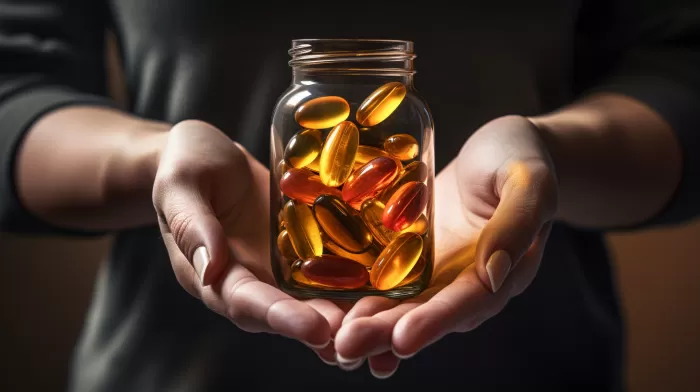If you’re struggling with arthritis, it’s time to learn about a highly effective treatment called prolotherapy and explore the nutritional supplements that can help alleviate your symptoms.
Understanding Prolotherapy
The ultimate goal of prolotherapy is to boost the development of new cells in persistently painful joints, ligaments, and tendons. The process involves periodic injections of dextrose (sterile sugar water solution) into the joint or its tendon or ligament insertions. The dextrose serves as an irritant, attracting white blood cells that trigger the growth of connective tissue cells and subsequently reduce pain.
Sadly, this therapy is largely overlooked by U.S. medical residency training programs. Furthermore, there aren’t enough clinical trials to prove that it performs effectively. Some may even argue that it’s suppressed by the medical establishment’s mindset: “If it isn’t covered by insurance, then it can’t be a legitimate treatment.”
According to Mayo Clinic internist Brent A. Bauer, M.D., “The American Pain Society advises against using prolotherapy to treat low back pain; however, other experts are withholding judgment until larger, more-comprehensive studies have been completed.”
While prolotherapy isn’t a pharmaceutical drug and doesn’t involve expensive surgery, it can be both safe and highly effective when administered by a skilled professional.
Herbs for Arthritis
Targeted nutrition for joint healing is the ideal treatment for those suffering from joint pain. Here are the supplements known to help arthritis heal naturally and reduce pain over the long term:
- Omega-3 fatty acids: Crucial for joint tissue regeneration, omega-3 fatty acids can be found in herring, trout, and salmon; borage oil (1.4 grams daily); cod liver oil (2 tablespoons daily); and krill oil (1 gram daily).
-
Coenzyme Q10-H2: Also referred to as ubiquinol, the reduced form of CoQ10 is five times more bioavailable than ordinary CoQ10. It is recommended at 100 to 200 mg daily.
-
Avocado and soybean unsaponifiables (ASU): This supplement protects cartilage from inflammation and stimulates new cartilage cell growth. Clinical trials have shown that ASU reduces knee and hip osteoarthritis pain. In France, it has been approved as a prescription drug for several years.
-
Glucosamine sulfate: Recommended at 1,500 to 3,000 mg daily in divided doses, glucosamine sulfate has been shown in a double-blind study to significantly lower pain scores by the end of eight weeks of treatment.
-
MSM: This compound can help restore collagen, increase muscle growth, and alleviate inflammation.
-
Biocell Collagen II®: Containing hydrolyzed collagen, hyaluronic acid, and chondroitin sulfate, this supplement strengthens, cushions, and lubricates joints. It may also help rebuild cartilage by stimulating chondrocytes.
-
Boswellia Serrata: This Indian herb reduces joint swelling and morning stiffness and enhances joint mobility.
-
Bromelain: A natural enzyme that blocks inflammation, bromelain has been shown to reduce immune system cell migration by 50% to 85%. Doses of 200 mg are an excellent alternative to NSAIDs.
-
Serrapeptase: Taken at 20,000 to 40,000 units twice daily, this natural enzyme dissolves scar tissue protein and reduces the inflammatory fluid surrounding injured joints and tendons.
-
Astaxanthin: This unique antioxidant is scientifically proven to be 550 times more effective than vitamin E in combatting harmful free radicals.
-
Turmeric (curcumin): For centuries, doctors in India have employed this spice to protect joints and enhance liver health by inhibiting COX-2 and 5-lipoxegenase inflammation pathways.
-
Ginger: At 500 to 1,000 mg daily, ginger increases blood flow to joints and improves lubrication.
-
SAMe (S-Adenosyl methionine): Comparable to Celebrex® 200 mg for pain relief by the end of the second month of treatment but much safer, SAMe is a natural compound found in the body.
-
Devil’s Claw: Comparable in studies to Vioxx (now removed from the market due to safety concerns) for the treatment of low back pain, Devil’s Claw is much safer at 50 mg daily.
In conclusion, prolotherapy is a safe and effective remedy for chronic joint pain. Be aware that supplements are not meant to be used like prescription drugs. A natural healing approach requires attention to lifestyle factors that help alleviate the condition.
Don’t forget to address your digestive health and any allergic reactions (from food or environmental chemicals) as well as inflammatory foods like refined sugar, hydrogenated oils, and high-animal-protein diets. Supplement your treatment plan with the healing herbs and nutrients described above, and embrace a life of feeling good.



